Table of Contents
Alpha-Lipoic Acid (ALA) is a sulfur-containing fatty acid naturally found in your body. Lipoic acid is unique among other antioxidants because it is both water- and fat-soluble.
You get small amounts of lipoic acid in your diet from spinach and collard greens, broccoli, beef and organ meats.
But lipoic acid declines in your body as you age. So you need to supplement with Alpha-Lipoic Acid to achieve the levels your body needs to run optimally.
With the unique ability to work in all cell environments, lipoic acid can neutralize free radicals. Damaging free radicals resulting from oxidation in cells is implicated in many types of age-related diseases.
Lipoic acid can navigate cells throughout your body. Which means it can also easily cross the blood-brain barrier.
Alpha-Lipoic Acid has powerful protective benefits against cognitive and neurological diseases like Alzheimer’s, Parkinson’s and depression.
Alpha-Lipoic Acid helps:
- Protect Neurons. Alpha Lipoic Acid has a powerful ability to neutralize the damaging effects of oxidative stress. Studies show lipoic acid even reducing brain damage after a stroke.[i]
- Neurotransmitters. Lipoic acid boosts the production of acetylcholine and glucose uptake in the brain. Showing promise in preventing or managing Alzheimer’s Disease.[ii]
- Brain Energy. ALA regenerates other depleted antioxidants (Vitamins C & E, glutathione), and recycles CoQ10. Reducing inflammation, and getting rid of heavy metals. Boosting cellular energy and memory.
Overview
Alpha-Lipoic Acid is an antioxidant produced in small amounts in your body. You also get it from eating spinach and collard greens, broccoli, beef and organ meats.
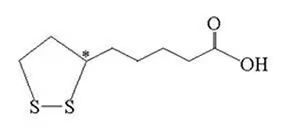
Alpha-Lipoic Acid (ALA) is a unique antioxidant because it is both water- and fat-soluble. Meaning it works in all parts of the human cell. The more lipoic acid you have in your system; the more antioxidant benefits you experience.
You need alpha-lipoic acid’s antioxidant power. Because it regenerates other antioxidants that were depleted by the ongoing fight with free radicals in your cells. It allows you to use the antioxidants Vitamin C & E, glutathione and CoQ10 already in your body over and over again.
In fact, alpha-lipoic acid is so efficient at what it does, it boosts the energy in your cells while reducing inflammation, and getting rid of heavy metals.
In your brain, alpha-lipoic acid boosts the production of the neurotransmitter acetylcholine. And even increases glucose uptake in brain cells. Providing you with a boost of mental energy.
Alpha-Lipoic Acid is used throughout your body. It helps increase insulin sensitivity which reduces the threat of diabetes. And ALA reduces the chances of metabolic syndrome which is associated with cardiovascular disease, diabetes and weight gain.
Alpha-Lipoic Acid vs. S-Lipoic Acid vs. R-Lipoic Acid
Lipoic Acid is also known as Alpha-Lipoic Acid, ALA and Thioctic acid. The Alpha-Lipoic Acid you get as a supplement is usually a 50/50 mixture of R-(natural) and S-(unnatural) enantiomers. They are mirror images of each other and called a ‘racemic’ mixture.
Most commercially available forms of Alpha-Lipoic Acid include the ‘S-form’, or unnatural form of lipoic acid. Chemically synthesized in 1952, and not found in nature.
It is thought that the two enantiomers differ biologically. But much of the research done over the last 30 years has been with the racemic version of Alpha-Lipoic Acid because the R-form was not commercially available.
S-Lipoic Acid (the enantiomer not found in nature) may not produce the most essential properties of Lipoic Acid. Including interactions with proteins, enzymes and genes.
 R-Lipoic Acid is the form of lipoic acid occurring naturally in the human body, animals, and plants. This is the only form that functions as a co-factor for mitochondrial enzymes involved in energy production.
R-Lipoic Acid is the form of lipoic acid occurring naturally in the human body, animals, and plants. This is the only form that functions as a co-factor for mitochondrial enzymes involved in energy production.
Be aware that most commercially available forms of Alpha-Lipoic Acid include both S- and R-forms of lipoic acid.
Alpha-Lipoic Acid is produced as a mixture because R-Lipoic Acid, when separated from the S-form, is very unstable. And deteriorates very quickly making it unusable as a dietary supplement.
Very few companies go through the complicated, expensive process required to remove the synthetic S-ALA from R-ALA. So unless the bottle specifically states 100% R-ALA, you’re getting a 50/50 blend.
Know that R-ALA may be up to 12 times more effective than S-ALA.
How does Alpha-Lipoic Acid Work in the Brain?
Alpha-Lipoic Acid boosts brain health and function in several ways. But two in particular stand out.
- Alpha-Lipoic Acid boosts acetylcholine, a neurotransmitter tied to memory and overall brain function.
ALA increases acetylcholine production by activation of choline acetyltransferase and increases glucose uptake. This process supplies more Acetyl-CoA for the production of acetylcholine.[iii]
- Alpha-Lipoic Acid is a promising weapon in the fight against neurodegenerative diseases like Alzheimer’s.
Oxidative stress plays a key role in cognitive disorders because neurons are highly vulnerable to free radical damage.
A recent study showed that lipoic acid may help slow down the progression of Alzheimer’s Disease. An area where no known cure has been produced by the big pharmaceutical companies.
In this study 43 patients with dementia were given 600 mg of Alpha-Lipoic Acid daily for 4 years. Researchers concluded from this study, “alpha-lipoic acid might be a successful ‘neuroprotective’ therapy option for Alzheimer’s disease.”[iv]
How things go bad
As we get older, our brain chemistry and metabolism changes.
↓ Acetylcholine levels decline
↓ Oxidative (free radical) damage in neural cells
↓ Heavy metal accumulation in cells
All of these age-related changes are contributing factors to the neurodegenerative diseases of aging, including Alzheimer’s, Parkinson’s and dementia. But even if you’re not concerned with the effects of aging, Alpha-Lipoic Acid can help.
Alpha-Lipoic Acid benefits
Research from hundreds of studies have shown that Alpha-Lipoic Acid will:
- Increase the production of acetylcholine
- Improve memory and learning ability
- Restore the health of neurons
- Boost cognitive performance and memory in Alzheimer’s patients.
Alpha-Lipoic Acid is both water- and fat-soluble and quickly crosses the blood-brain barrier after you take it.
ALA improves your brain function and learning processes by directly increasing the production of acetylcholine.
Alpha-Lipoic Acid also helps regenerate depleted antioxidants in your system including Vitamins C and E, glutathione and Coenzyme Q10.
By reducing inflammation and heavy metals in your brain, you boost cognitive processes and fluid thinking.
How does Alpha-Lipoic Acid feel?
You may not feel ALA… unless you’re diabetic or have Alzheimer’s. Within these specific groups, Alpha-Lipoic Acid helps with nerve pain, memory, recall and mental performance.
Alpha-Lipoic Acid’s provides brain support because it has the ability to boost acetylcholine. So should boost cognition in all age and gender groups.
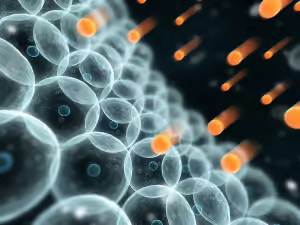 Your entire body, even your DNA is under endless assault. This assault is caused by everything from poor diet to pollution. And your brain cells are getting hit by free radicals thousands of times per day. This oxidation is damaging your cells.
Your entire body, even your DNA is under endless assault. This assault is caused by everything from poor diet to pollution. And your brain cells are getting hit by free radicals thousands of times per day. This oxidation is damaging your cells.
Antioxidants fight back against these free radicals. When you supplement with Alpha-Lipoic Acid, not only are you using arguably the most effective free radical scavenger on the planet. You’re regenerating antioxidants like Vitamin C & E, glutathione and CoQ10.[v]
And they join the fight against free radicals alongside Alpha-Lipoic Acid.
Alpha Lipoic Acid Clinical Research
Alpha-lipoic acid plays an essential role in mitochondria. The heart of energy-generation in the human cell. Scientists at Emory University School of Medicine found ALA can stimulate telomerase, the enzyme that lengthens telomeres.
The effects of many chronic diseases can be traced back to telomere shortening. (Telomeres are the ‘caps’ on the end of each chromosome in your DNA).
Any treatment that can restore healthy telomeres has great potential in the fight against chronic disease.
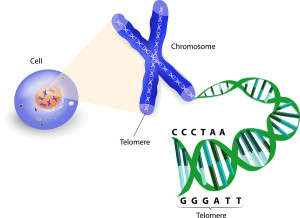 In this study scientists showed Alpha-Lipoic Acid boosted the production of PGC1-alpha. The telomerase that lengthens telomeres. And they did it in just one day of treatment.[vi]
In this study scientists showed Alpha-Lipoic Acid boosted the production of PGC1-alpha. The telomerase that lengthens telomeres. And they did it in just one day of treatment.[vi]
Alpha-Lipoic Acid Reduces Wrinkles
A topical solution of 5% Alpha-Lipoic Acid was applied to the faces of volunteers. This double-blind, placebo-controlled trial showed a reduction in facial lines, almost complete eradication of fine lines, and an overall improvement of skin color and texture in most volunteers.[vii]
Alpha-Lipoic Acid Critical for Cellular Energy
Cellular energy is behind every single action that happens in your body. Including your brain. Cellular energy is required for muscle movement, producing new cells, wound healing and thinking.
The mitochondria in each of your cells is the source of this energy. This ongoing energy production process is call the Krebs Cycle. Alpha-Lipoic Acid is a cofactor to two key enzymatic reactions within the Krebs Cycle.
In the simplest terms, without ALA, cellular energy is not possible. And without cellular energy, well… life is not possible.[viii]
Memory Loss Reversed with ALA and Acetyl-L-Carnitine
Accumulated oxidative damage to brain cell mitochondria eventually leads to neuronal and cognitive dysfunction.
One study on rats showed supplementing with ALCAR and Alpha-Lipoic Acid improved memory. By lowering oxidative damage and improving mitochondrial function.[ix]
Alpha Lipoic Acid recommended dosage
Taking Alpha-Lipoic Acid with a meal decreases it bioavailability. So we recommend taking ALA on an empty stomach (1 hour before eating).
Most Alpha-Lipoic Acid supplements contain a 50/50 mixture of R-LA and S-LA. Supplements claiming to contain only R-LA are often more expensive. And information regarding their purity is not often available.
Peak plasma (blood) concentrations of R-LA were found to be 40-50% higher than S-LA. This suggests that R-LA is better absorbed than S-LA.[x]
The only pre-formulated nootropic stack that I’ve been able to find that uses pure R-LA, and which I use and highly recommend is Performance Lab® Energy which contains 100 mg of the patented Bio-Enhanced® version of R-Lipoic Acid. Which is up to 12-times more effective than other regular alpha lipoic acid supplements.
- Alpha-Lipoic Acid dosage for cognitive benefits is 2- 600 mg per day.
- ALA dosage for diabetic neuropathy is 800 mg per day divided into two doses.
- Alpha-Lipoic Acid dosing for antioxidant benefits is 50 – 100 mg per day.
Alpha Lipoic Acid Side Effects
Side effects for using Alpha-Lipoic Acid as a supplement are generally rare. But can include diarrhea, fatigue, insomnia and skin rash.
Alpha-Lipoic Acid can lower blood sugar levels. So if you have diabetes or low blood sugar, you should take Alpha-Lipoic Acid under the supervision of your doctor.
Alpha-Lipoic Acid supplementation can lower levels of thyroid hormone. So get your thyroid labs done when using ALA. And adjust your dosage of both ALA and thyroid meds accordingly.
Alpha-Lipoic Acid can lower levels of Vitamin B1 (Thiamine). This can be dangerous for alcoholics, or in cases of malnutrition. It would be wise to add Vitamin B1 or Sulbutiamine if your taking ALA.
The chemical structure of Biotin is similar that Alpha-Lipoic Acid. And there is some evidence that ALA can compete with Biotin for transport across cell membranes. This may require higher doses of Biotin if you’re using ALA.
Best type of Alpha Lipoic Acid to buy
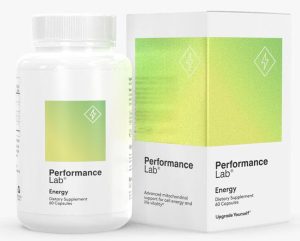 Most Alpha-Lipoic Acid available as a supplement is a 50/50 combination of R-LA and S-LA. S-LA is the synthetic version of ALA and not found in nature.
Most Alpha-Lipoic Acid available as a supplement is a 50/50 combination of R-LA and S-LA. S-LA is the synthetic version of ALA and not found in nature.
R-LA and S-LA are combined because R-LA is highly unstable on its own. And degenerates quickly.
Studies have shown that 30-40% of an oral dose of Alpha-Lipoic Acid is absorbed. Oral ALA supplements are better absorbed on an empty stomach. Taking ALA with food reduces total plasma (blood) concentrations by about 30%.
The sodium salt version of R-LA may be better absorbed than free lipoic acid, likely because of it higher solubility. And is up to 12-times more effective than other alpha lipoic acid supplements.[xi] I use and highly recommend Click for Performance Lab® Energy .
Nootropics Expert Recommendation
Alpha-Lipoic Acid 50 – 600 mg per day.
I recommend using Alpha-Lipoic Acid as a nootropic supplement.
Your body does make some Alpha-Lipoic Acid on its own. And from the food you eat. But the science is clear that supplemental ALA is a potent antioxidant. And acetylcholine booster.
Alpha-Lipoic Acid can lengthen telomeres which is great for your neurons. And neurogenesis (new neuron creation).
ALA also helps regenerate antioxidants already in your system that have been depleted while doing their job. Of getting rid of free radicals in your cells. So you get a double benefit while using Alpha-Lipoic Acid in the antioxidant department.
Alpha-Lipoic Acid also helps in the creation of acetylcholine. Which boosts all cognitive functions including memory, recall, focus and concentration.
ALA is especially helpful for those suffering with diabetes. Studies show it helps relieve diabetic neuropathy or nerve pain. But care must be taken because ALA can lower blood sugar levels. So work with your doctor is using Alpha-Lipoic Acid.
I suggest starting with a dose of 400 mg daily. And work your way up to 600 mg per day. Taken in two doses during the day. Alpha-Lipoic Acid is often stacked with B-vitamins.
I use and highly recommend Click for Performance Lab® Energy .

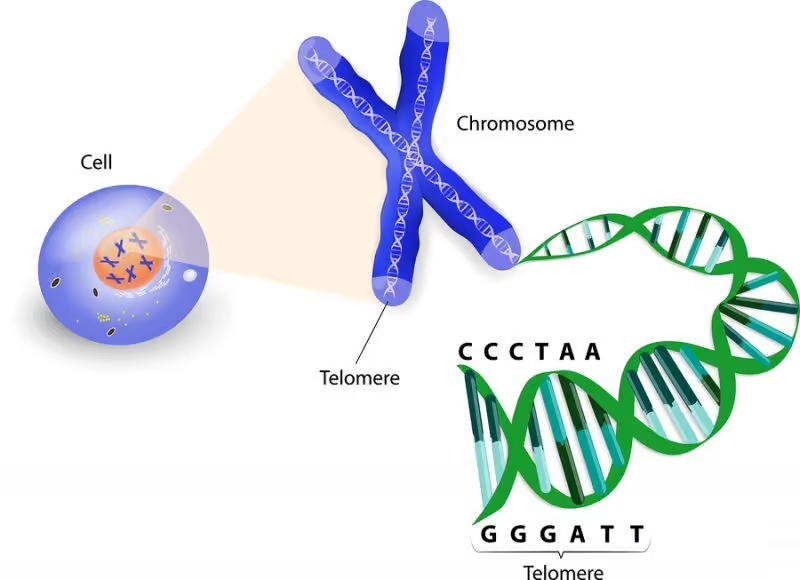








Join The Discussion - 134 comments
Robert L
April 11, 2021
Hi Sir – Been a long time…
About the production of or Boost in Acetylcholine, it seems This ALA is essential when using Alpha GPC?
I.e. if one adds Alpha GPC it’s best to add ALA?
Thank you…
David Tomen
April 15, 2021
Robert, Acetyl L-Carnitine (ALCAR) is essential when using something to boost acetylcholine. ALA is a good option as well. But ALCAR comes first.
Dalila Kessaci
March 19, 2021
My daughter is 11 years old and epileptic. She takes Coq10, Bio PQQ, L- Carnitine tartare, B complex, magnesium l- threonate, D3/k2, AlgaeCal calcium and Vitamin C.
I would like to add alpha R alpha lipoid acid as anti- oxidant is the product below good.
[BulkSupplements R-Alpha Lipoic Acid Powder]
Thank you
David Tomen
March 21, 2021
Dalila, Bulk Supplements puts out good quality product and have a good testing program in place to ensure quality and potency.
I also suggest that you search Nootropics Expert using the search bar top right of the main menu above. Search for the keyword “epilepsy”. And you’ll get several suggestions that you may not have thought of to try.
Karl
March 19, 2021
What is your take on ALA’s chelating properties? Andy Cutler warns against supplementing with ALA irregularly for the risk of mercury redistribution in the brain and organs.
David Tomen
March 21, 2021
Karl, Alpha Lipoic Acid helps your body get rid of heavy metals. It doesn’t “redistribute” them.
Matt
June 15, 2022
Hi David,
My psychiatrist has no idea what I’m talking about with a lot of these supplements but things like sulbutiamine, alcar, alpha GPC, Nalt, Lions Mane and Rhodiola have all helped me a lot! They’ve largely taken the place of the stimulant medicine I was taking that had some side effects I didn’t love.
I’ve recently started taking about 100mg of stabilized ALA a couple times a day from a reputable brand (life extension).
How do I determine the risk profile of this medicine considering that I really only play a neurochemist on the internet 😉
I trust your research and opinion, but outside of parotting back what I read on the internet I have no idea what chelation is.
Thanks for all that you’ve done; your site has had a really positive effect on me!
David Tomen
June 15, 2022
Matt, the majority of natural nootropic supplements are safe and non-toxic when used at recommended doses.
Each one of my reviews contains dozens of links toper-reviewed clinical studies backing up what I write. I always recommend that everyone verify what I say with the science that is readily available. Don’t trust what I say otherwise. 🙂
Chelation means some compound in a supplement binds to specific heavy metals and helps your body excrete them.
Ahmed
March 15, 2021
Hi David.
I am 19 years old, and have been taking A multivitamin with Omega3s for months now and have been feeling great
but two weeks ago I started adding other nootropics:
Piracetam
Sulbutiamine
Ginkgo Biloba
Alpha Lipoic Acid
L Carnitine
And since then, My work ethic and motivation have improved greatly, BUT somehow my memory has gotten a lot worse, and I experience forgetfulness even on daily tasks.
So my question, if I may ask, is: what do you think could be causing this?
David Tomen
March 15, 2021
Ahmed, there is no supplement in the list you provided that has memory loss as a side effect. The only way to figure this out is stop everything and then add them back one at a time. Giving each one a one or two day trial and see how it affects you.
Ahmed
March 15, 2021
Will do. Thanks, David.
Wilma
March 3, 2021
David, in my last medical analysis, the enzymes in my liver were highly altered. To improve my liver, do you recommend taking N-Acetyl L-Cysteine and Alpha-Lipoic Acid together, or is taking only N-Acetyl L-Cysteine enough?
– also I would like to know please if the N-Acetyl L-Cysteine and the Alpha-Lipoic Acid that they sell in Bulk Supplements are good enough? They are the only ones that I find in my country together with those of Now Foods, thanks
David Tomen
March 4, 2021
Wilma, NOW Foods produces quality supplements and have a comprehensive testing program in place to ensure purity and quality.
Those are good choices but I would also add Milk Thistle, and check out something called “TUDCA” which I’ve just learned about for liver health.
Wilma
March 5, 2021
Thanks David for your time, I want to know if it is bad to consume more than 1000 mg of N-Acetyl L-Cysteine in a single dose or why they should be divided into three 600 Mg doses?
– And I would also like to know, please, the consequences of consuming expired SAM-e?
David Tomen
March 6, 2021
Wilma, the half-life of N-Acetyl L-Cysteine is about 6.5 hrs. So it’s completely gone from your system in about 12 hrs. I came up with dosing morning, noon and later in the day so there is a constant and level amount of NAC in my system for as close to 24 hrs. as I could manage.
Expired SAM-e will likely just not work or provide you with any benefit.
Andy
February 19, 2021
Can I take this 3hours before bed or will it get me energized somewhat? I have 100mg R type?
David Tomen
February 19, 2021
Andy, one of the known side effects of this nootropic is insomnia. It may not be a good idea to use it 3 hrs. before bed.
Marina
December 11, 2020
Hi David,
I was looking for info about alpha-lipoic acid and got to your site which I am very happy about. Maybe you can help me. I was recommended alpha-lipoic acid by my endocrinologist as a way to fix my ‘fatty liver’ and regulate TSH (I have hypothyroidism). She didn’t say anything about doses. When I was doing search for ALA I found Alpha GPC and thought that they are the same. But now I have doubts. Are they the same? If not – what, in your opinion, is better? I have been using some nootropics in the past (memory problems).
Thank you for the site
David Tomen
December 12, 2020
Marina, Alpha Lipoic Acid is a fatty acid and very different from Alpha GPC which is a choline source. Both contribute to the synthesis of acetylcholine.
But Lipoic Acid provides other brain benefits which are described in the above review. This is the review for Alpha GPC for comparison: https://nootropicsexpert.com/alpha-gpc/
Neither “is better”. Both are useful nootropic supplements. Dosage recommendations are near the bottom of each article. And are often different than what you’ll find on the supplement bottle.
You can learn more about supporting memory here: https://nootropicsexpert.com/best-memory-supplements-to-buy/
Marina
December 14, 2020
Thank you VERY MUCH!
Christopher Guarascio
October 21, 2020
Hello,
I’m curious on any of your thoughts on R-ALA Cyclodextrin and then
R-ALA Cyclodextrin v.s Na-R-ALA?
David Tomen
October 21, 2020
Cristopher, according to this study (https://www.ncbi.nlm.nih.gov/pmc/articles/PMC4926482/) adding cyclodextrin to R-Lipoic Acid helps stabilized a normally unstable compound. And improves its bioavailability.